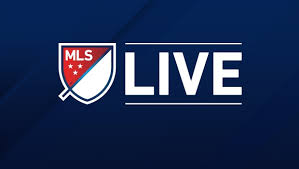By Ben Nicholson
December 8 – Major League Soccer (MLS) has had a glowing report card sent home in respect to its progress in gender diversity. The Institute for Diversity and Ethics in Sport delivered the league a solid B for gender diversity, which is a two-footed leap from 2014 when the league was brandished with a must-improve C+.
The number of women in senior administration jobs increased in the past 12 months by a grand seven, going from forty-two to forty-nine. This increase runs parallel with the two MLS teams that joined the league this year (NYC FC and Orlando City SC).
The MLS offices themselves are occupied by females at a percentage of 37.4, which is actually the same as in 2014.
The MLS has been making significant moves to be seen as a progressive league. Only it and the NBA are men’s leagues with a grade higher than a B when it comes to gender diversity.
These efforts are perhaps best seen as part of a larger effort to establish a footing in the US market, where currently basketball, baseball and American Football reign supreme.
Recently, the United States Soccer Federation implemented limitations on youth players heading the ball, in response to controversy surrounding concussions and the health of athletes. Setting this precedent provides pressure to other contact sports in the US to react equally as protectively, else potentially lose custom to a more acute sport.
Similarly, the league’s more forward-thinking gender attitudes generate positive reputation for the sport, sitting superior to its competitors.
While the greatest diversity improvements were made on the gender front, the MLS continued to excel most in is diversity initiatives, where it received a laudable seventh-consecutive A+.
Lagging slightly behind that, the league was provided a B+ grade in racial diversity. There are currently just two head coaches in the MLS who are from racial minorities, no persons of color serving as a CEO, and just one person of color as a general manager of a team.
Contrast this with the A+ the league received for racial diversity amongst players. The stark different between racial representation on the field and in the dugouts remains a globally concerning trend.
The principal author of the report, Richard Lapchick, commented on the difficulty of moving the needle in respect to amending diversity imbalances with more established leagues. He suggested that MLS’ relative infancy makes it possible to do more and do more sooner than elsewhere.
Contact the writer of this story at moc.l1734844933labto1734844933ofdlr1734844933owedi1734844933sni@n1734844933osloh1734844933cin.n1734844933eb1734844933

